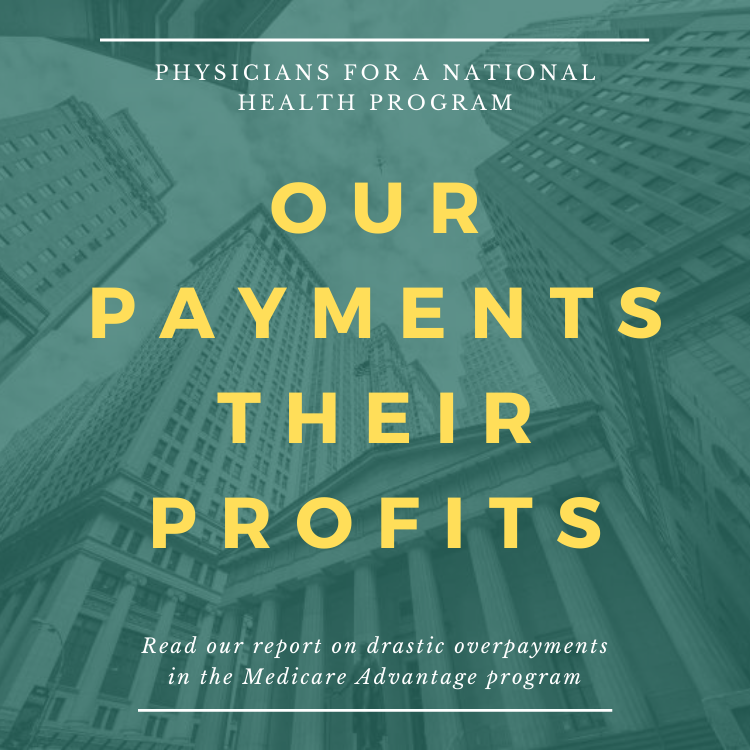Summary: An important story mostly overlooked in the 2022 midterms is strong voter support for health reforms in the face of politician inaction. Ballot measures that passed included regulating medical debt collection, expanding Medicaid, and demanding universal publicly administered health insurance.
Arizona’s debt collection reform–a small step towards health justice, BMJ, November 23, 2022, by Christopher Robertson, Steffie Woolhandler, and David Himmelstein
Americans are swimming in medical debt—or, more aptly, drowning in it. And, if the results of elections in Arizona on 8 November are any indication, they’re angry about it. Proposition 209, a ballot initiative on whether Arizona should place limits on debt collection for medical bills, garnered support from nearly three quarters of voters. That lopsided margin is particularly striking in a state whose government has long been controlled by Republicans and where the 2022 midterm election votes were almost evenly split between Republican and Democratic candidates.
The Arizona initiative continues the US trend of voters passing progressive health reform policies for an individual state that their Republican controlled legislatures had resisted. In the November election, for example, South Dakota became the latest jurisdiction to use a popular vote to expand Medicaid coverage for people on low incomes—following states such as Idaho, Missouri, Nebraska, and Utah. Like Arizona’s proposition 209, these votes suggest a mismatch between US politicians and many of their constituents. …
For Arizonans, proposition 209 does nothing to reduce the amount of medical debt they acquire, but it softens the consequences. The proposition’s most notable provision caps the interest rate on medical debts at 3% (or a percentage indexed to the yield on US Treasury bonds). Nonetheless, federal law allows national banks to export higher interest rates from the states where they are chartered. Consequently, if Arizonans put medical expenses on a credit card, or take on medical debt with another national lender, that debt will be unaffected by the 3% cap.
Proposition 209 includes several debt collection reforms, and these apply generally, not just to medical debt. … [it] protects a portion of debtors’ assets and incomes, making them “exempt” from debt collection. …
These sorts of exemptions from asset seizure and wage garnishment won’t resolve the medical debt and all its attendant problems. Even if uncollectible, the debt stays on a person’s record and thereby can continue to impinge on their health and access to credit for subsequent medical care or other needed expenses, such as housing or transportation. …
Proposition 209 does, however, make it somewhat less lucrative for healthcare providers to pursue patients for unpaid bills. …
Although proposition 209 is an important effort, these sorts of changes can’t substitute for the US implementing a simpler, more humane system of universal and robust health insurance coverage. One can imagine a world where consumer medical debt doesn’t exist—but Americans aren’t living in it.
Comment:
By David Himmelstein, M.D. and Steffie Woolhandler, M.D., M.P.H.
In the dozen years since the passage of the Affordable Care Act (ACA), policy wonks have applauded the shift to so-called “value based” payment. But this shift has had dire consequences: giant provider systems taking over local hospitals and physician practices, health insurer profits skyrocketing (mostly garnered from taxpayer-funded programs), and private equity marauders capturing a growing share of health care resources. Meanwhile, the number of Americans unable to afford care has surpassed pre-ACA levels.
In response, politicians have done … virtually nothing. The best that can be said is that they stopped Medicaid programs from expelling enrollees during the height of the COVID-19 pandemic, and tinkered with ACA premiums and Medicare drug costs.
When American voters have been asked whether that’s enough, they’ve answered, resoundingly, “NO” — in Red states as well as Blue. This year, Massachusetts voters in 20 districts were asked “Shall the Representative from this District be instructed to vote for legislation to create a single payer system of universal health care that provides all Massachusetts residents with comprehensive health care coverage including the freedom to choose doctors and other health care professionals, facilities, and services, and eliminates the role of insurance companies in health care by creating an insurance trust fund that is publicly administered?” Voter support was overwhelming: In Republican-dominated areas (yes, there are some in Massachusetts) as few as 55% voted to endorse that statement; in Democratic-dominated ones, as many as 87% did. Other communities across the US passed similar measures.
Now, more than ever, Americans need and want fundamental health care reforms that will assure universal, first-dollar coverage, and drive the money grubbers from the temple of medicine.
http://healthjusticemonitor.org…
Stay informed! Subscribe to the McCanne Health Justice Monitor to receive regular policy updates via email, and be sure to follow them on Twitter @HealthJustMon.
